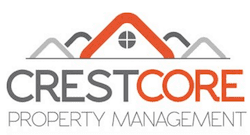Only borrow against income producing assets. -Mr. J
One of my mentors gave me this concept years ago. I believe it is one of the best nuggets of wisdom I have ever received. In fact, I have made it a mantra in my life. I would encourage you to do the same.
Here are the three rules I have established from his advice.
1. By and large, I do not borrow money unless an income producing asset is the primary source of repayment.
2. On the off chance I borrow against a depreciating or non-income producing asset (such as a car or personal residence), I only borrow a fraction of the conservative market value of the asset (i.e., < 50%).
3. I do not borrow to pay for non-assets.
For example, I don’t carry credit card balances nor do I borrow for education, to take vacations, or for every day living expenses.
That said, I do borrow heavily to finance investment properties. However, whenever I borrow against an income producing asset such a rental house, I make absolutely sure that (1) the income generated from the operations of the asset can cover the debt service (i.e., the principal and interest) and (2) that the conservative liquidation valuation of the asset is more than the amount borrowed (i.e., in a worst case scenario I could sell the asset and pay back the debt from the proceeds of the sale).
Here’s a great quote from Robert Kiyosaki that succinctly says the same thing.

The main takeaways from my mentor’s quote are obvious.
Even though debt by itself isn’t necessarily a bad thing, you should avoid it if you can. It’s kind of like a loaded gun. In certain situations debt or a gun can be very useful. However, if you are careless in your thinking and actions when handling debt or a gun someone could wind up seriously hurt.
Non-income producing assets or non-assets are not items that you want to purchase with debt since they have little or no cash generating or residual value in themselves. Conventional wisdom tells you that its okay to borrow for those things. It is not. Get creative instead. For example, I got a graduate degree from a private university and didn’t borrow a dime. Instead I creatively used scholarships, employer tuition reimbursement assistance, personal savings, and worked a day job while going to school at night. You can do the same.
If you can accomplish your dreams without it, you should avoid debt.
What are your rules for using debt?
Originally posted by Douglas Skipworth on Bigger Pockets, Friday, March 11th
https://www.biggerpockets.com/blogs/7666/48885-j1—debt-is-a-tool-not-a-toy-theres-a-big-difference
